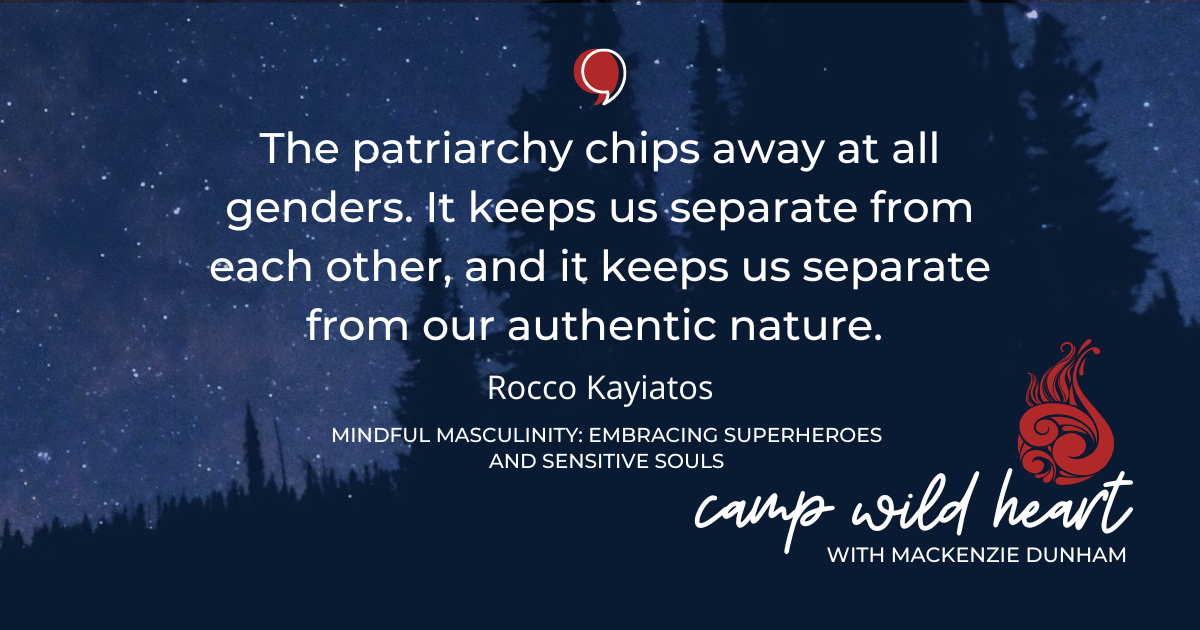
Welcome
to the campfire.

No one plans for having a transgender kid. We’ll help you ease your fear and navigate your confusion.
Every other week, we’ll introduce you to people who share their stories, fears, breakthroughs, and deep love for their kids. You’ll also hear from the people who can answer your toughest questions (and the ones you even hesitate to ask).
Camp Wild Heart is full of people just like you who are lost and searching, brave and afraid, and trying their best to do right by their children. You’ll laugh, you’ll learn, and yes, you’ll cry; but never alone.
Find Camp Wild Heart on your favorite podcast player!
About the Camp Wild Heart Podcast
Mackenzie Dunham, clinical social worker and co-founder of Wild Heart Society, talks with parents, experts, and transgender adults about the ins and outs of coping with internalized transphobia, fostering shame resilience, exploring medical transition for youth, understanding identity development, knowing what language to use when, and more.
My guests today are parents Jennifer and Jeff, and their story is an amazing illustration of how supporting their son in being his authentic self became a bonding experience for their whole family.
Today’s conversation follows Shannon’s journey of doing her own healing work so that she could be the kind of mom she really wanted and needed to be for her trans daughter.
So many of us are trying so hard to protect our kids from failure of any kind. To talk about how we can support our kids through failure, I reached out to Jessica Lahey, author of The Gift of Failure. And Jessica happens to be the parent of a trans kid, so we talk about that too.
Today, I’m talking with comedian Kristin Key about the unfortunately common experience of religious trauma in queer communities. She shares how her family’s faith impacted her coming out. We also chat about neurodivergent quirks, swap camp memories, and the wild connection between me, Kristin, and Brandi Carlisle.
I’m chatting with Sol Smith about the overlap of neurodivergence and transness in our kids, and also how–because neurodivergence is genetic–when I tell a parent that I think their kid might be neurodivergent, I might also be telling them, hey, you might be too.
Today's guests discuss the experience of having a transgender kid while being in a conservative family. Tom and Amanda have wholeheartedly committed to educating themselves and supporting their daughter through her transition, strengthening their family in the process.
Today, we're catching up with my friend, and friend of the podcast, Flint Del Sol. Every time we talk, the conversation goes off in a million different directions, but it always ends up someplace super nerdy, and someplace deeply emotional. This one is no different.
To kick off this new season, I invited back the last person I had on the show before my break. Mitch joins me again to share what the last couple of years have been like as his family adjusted to their move to Washington from Texas in support of their trans daughter.
After a longer than originally intended break from this podcast, I am back and I am ready. We have a great season coming up for you. You're going to hear from some old and new friends of the podcast, some listeners, and lots of families.
Today, we’ll hear from a dad, Mitch, who moved his family from Texas to Washington to escape the oppressive legislation passed there. You’ll also hear about Mitch’s activism on behalf of his trans daughter and gay son, from school board meetings to testifying at the Texas state house, and the impact it had on him, his marriage, and his kids.
Today we're going to hear the story of a trans woman who didn't transition when they were young, even though they knew that's what they wanted and needed. She's going to share the story of the life that she has lived struggling with who she is and how to be in the world.
Jaime Hamilton shares tools that are actually effective in helping kids stop bullying and hold on to their own power through a technique of using neutral responses.
We’ll hear from Mama Bear, Catherine, about how she and her family navigated her child’s coming out and transition, and how different her experience has been as a parent from one kiddo to the next.
Struggles with body image and with body dysphoria can lead cis and trans kids to patterns of disordered eating and disconnection from their bodies. Eating disorders are prevalent in the trans community because they are often a coping mechanism for the stress and stigma of being trans.
Today we’re digging into the relationship of neurodivergence and transness and how it impacts the body and how holding a marginalized identity or identities literally shapes the body.
I’m talking with Rocco Kayiatos about toxic masculinity, how it shows up and impacts our children, what we can do to reeducate ourselves and our children about what it means to be a man, and how embrace mindful masculinity.
One of the most common conversations I have with white parents of trans kids, usually pretty early on and always because they bring it up, is about their awareness of exactly how much privilege they have, and also how much it sucks to lose it.
We’re continuing our conversation about creating a safe and supportive space for trans kids, and the trans adults they need in their lives to show them that they will be fine, and that what they are experiencing is normal.
Today we’re talking to a teacher named Flint about what kids are really facing in schools, how to support them while they’re trying to get their education, and how to communicate with teachers to help them understand the unique needs of your student.
We'll hear from Mama Bear Kate about how she and her family went about supporting her non-binary child, Rachel, without a map, navigating the seas of judgment as they began to socially transition.
In this episode, I’m talking with Flyn Alexander about ways to talk with trans kids who may be hesitant or uncomfortable discussing sensitive topics, such as their transition.
Parents have lots of questions about when and how to start conversations about gender and queerness with our kids. We need resources for talking about queerness. That’s where Lindz Amer comes in.
Coming out is an age old tradition for queer kids. Some even think of it as a right of passage. And as you navigate the coming out process it is sure to bring up lots of questions. So to help us in this conversation, I’ve asked my good friend and co-counselor, Jess Guerriero to join us.
As parents, no matter how much we love our child, our own stuff comes up. It creeps in. It gets in the way of us being able to show up for our kids in the ways they need us to, and the ways we want to.
How do we help a girl whose voice has dropped? Or a boy who is the only one of his friends whose voice hasn’t changed at all? Vocal Coaching. Vocal coaching isn’t a quick fix. It takes diligence, time, practice and more practice to transition a voice.
It certainly isn’t the case for everyone, but for many parents, raising a transgender kiddo can feel like a pretty isolating experience. That’s why sometimes, parents end up taking it into their own hands. That’s exactly what our campfire guest, Shannon Collins, did for their kiddo.
There are so many labels in the gender universe, and because it is continuously evolving, it makes continuous learners out of all of us. My hope is that as people hear more gender journey stories like today’s guest’s, an awareness will be built and that more and more people will feel confident going on a journey of gender exploration.
Dysphoria is a word that gets thrown around a lot in the trans community. Dysphoria is NOT a qualifier for being trans. But since it is very common, we thought it would be worth telling you about how and when it shows up, what it feels like, and how you can support your kids through it.
I think that advocacy and inclusion work as a parent of a trans kid is almost inevitable. Today’s campfire guest is a therapist, social justice advocate, racial equity trainer, small business owner and overall badass, Martha Stebbins.
Showing up is about making sure our kids feel soothed, safe, seen, and secure. Mama bear Michelle is going to be talking about how she chose to show up for her kids and what that has meant for them and for her entire family.

























